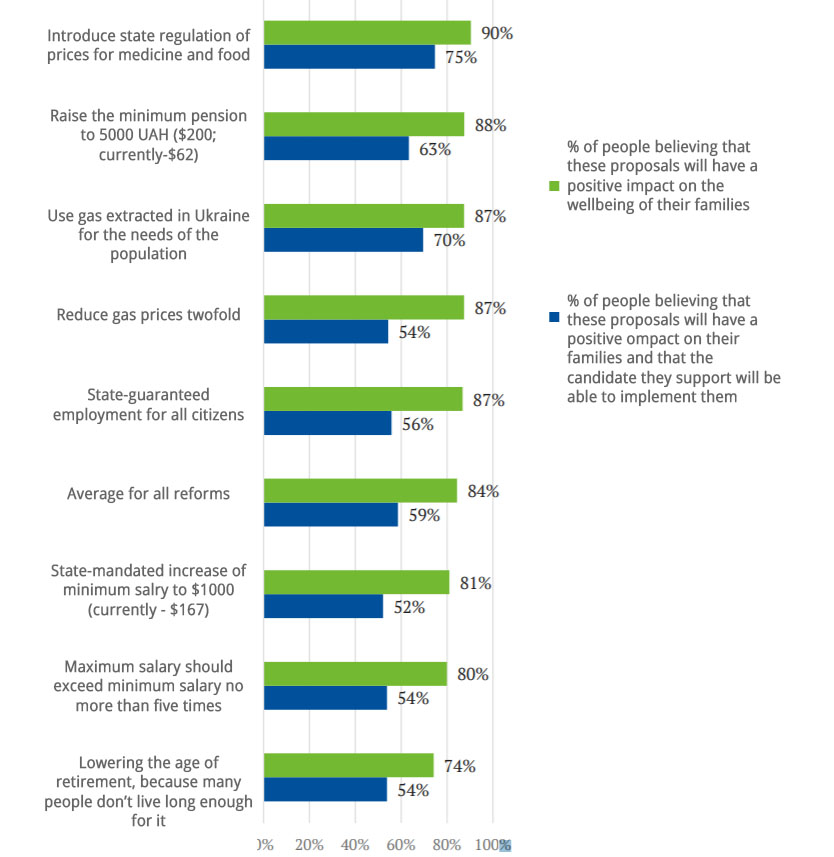Researchers from the Center for Economic strategy selected eight populist reforms from the programs of presidential candidates. All eight policies that were examined fall under the common framework of socialist or left-wing policies, the implementation of which is unrealistic under Ukraine's current conditions. They can seem like a simple solution to a complicated problem but can carry great long-term negative consequences. They include:
- introducing state regulation of prices for medicine and food - a potentially harmful measure, as artificial depression of prices for products below market levels will eventually lead to their deficit and deterioration of quality;
- a twofold reduction of gas prices, which were for years subsidized by the state and raised from their ridiculously low position to market levels only after the Euromaidan Revolution upon the demand of the IMF;
- using gas extracted in Ukraine for the needs of the population - an unrealistic promise, as the volume of gas extracted by state companies is insufficient for covering Ukraine's needs, and the state can't force private companies to sell gas to citizens at low prices;
- a $1000 minimum wage, a far cry from the current $167, which will lead to the growth of a shadow economy and unemployment, a three-fold rise in the minimum pension, which will lead to a budget deficit and will lead to inflation, as well as establishing a top limit for salaries, which will negatively impact labor incentives and, consequently, limit economic growth;
- state-guaranteed employment for all citizens, which is impossible to achieve as the state can't force private businesses to have more employees. The only way this promise can be met is by expanding the number of workplaces in the state sector, but this requires state expenditures Ukraine cannot meet;
- rolling back the IMF-prodded decision to gradually increase the retirement age from 55 to 60 for women and from 60 to 60-65 for men. The step was needed because Ukraine, with one of the lowest retirement ages in Europe but low birthrates, is struggling to support its army of pensioners.

While these labor demands are part and parcel of the democratic debate in many countries, Ukraine's economy simply cannot cover such demands, as anybody with a fleeting understanding of the country's financial situation and the market economy understands.
The results of the poll are more striking when we consider the electoral choices such voters make in the democracy which is Ukraine. On average, 84% of respondents consider populist policies positive for their personal wellbeing while 59% think that they are also realistic. What is most shocking, 52% of Ukrainians think that all 8 policies are positive and only 1% support none of them.
How to persuade people of the opposite?
Speaking in brief, it's not that easy. Yet, experts from the Center for Economic Strategy asked several more questions and found out that much fewer respondents (54% instead of 84%) favor a populist policy if they should choose among two alternatives rather than say whether they support a particular policy or not. Therefore, it was concluded that it's better to explain the available alternatives to populist policies and what positive consequences they bear, rather than to say only about the negative effects of one populist policy.
Another recommendation confirmed by the research is to explain from a personal, egoistic point of view. Much fewer people choose to lower the pension age if they are rationally informed about the amount of their pension, that will be lowered proportionately to the pension age and vice versa.





